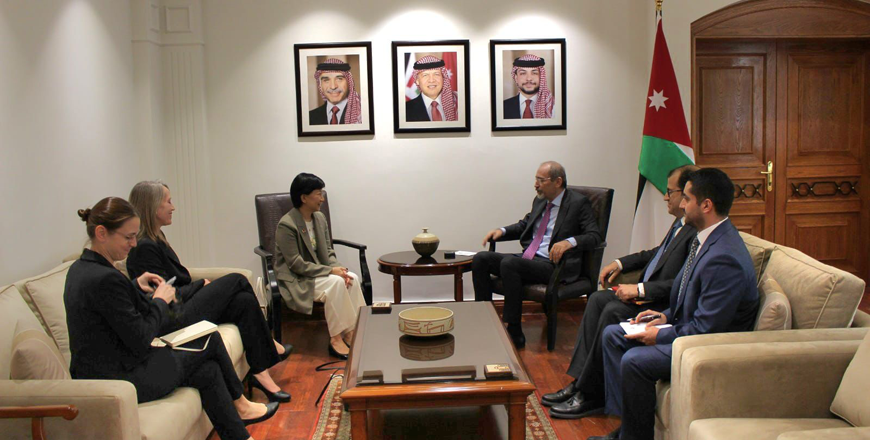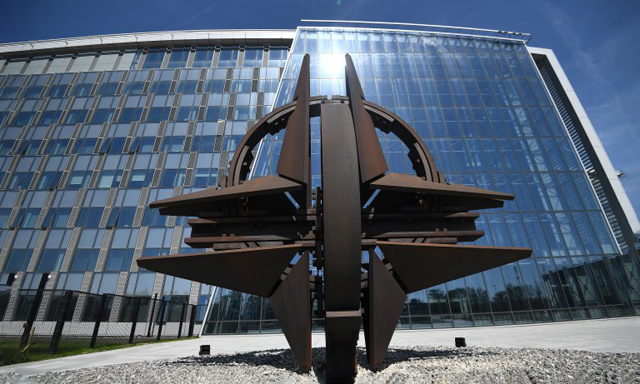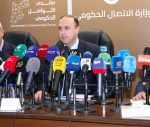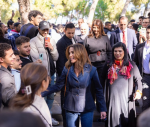You are here
Jordan key partner in ‘unavoidable combat’ against small arms proliferation
By Mays Ibrahim Mustafa - Oct 04,2023 - Last updated at Oct 04,2023
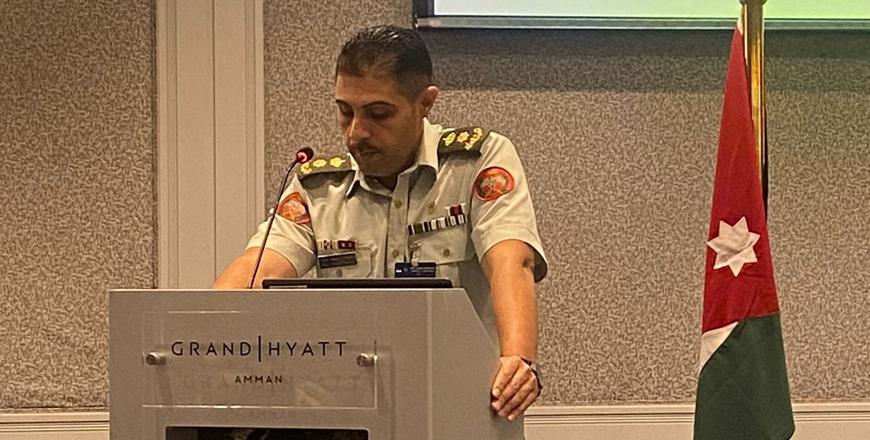
Lt. Col. Yousef Haddad
AMMAN — Jordan has been a “key” partner for both regional and international organisations in the fight against the proliferation of small arms and light weapons, said Lt. Col. Yousef Haddad from the Jordan Armed Forces-Arab Army.
His remarks were made on Wednesday during the two-day NATO - Jordan Conference on Small Arms and Light Weapons held in Amman.
Growing conflicts in the Middle East region have put Jordan in the face of an “unavoidable combat” against the illicit trafficking of small arms and light weapons (SALW), the lieutenant colonel said.
He stressed that one country cannot single-handedly put a stop to this illegal activity; that’s why Jordan has worked on developing partnerships with intergovernmental organisations, including the European Union, the League of Arab States (LAS), Interpol, the World Customs Organization (WCO), and the North Atlantic Treaty Organization (NATO).
Jordan has requested NATO’s assistance in strengthening standards, regulations and procedures to ensure a comprehensive lifecycle management of ammunition at the national and regional level, according to Haddad.
Other support areas include enhancing self-education and training efforts in addition to improving the capacity for physical security and stockpile management, he added.
Haddad further explained that NATO and Jordan began their cooperation on small arms and light weapons under the framework of the Defense Capacity Building Initiative (DCBI) Trust Fund, through which NATO constructed an ammunition demilitarisation facility.
The NATO Trust Fund projects in Jordan aim to provide it with a “self-sustaining demilitarisation capacity” by implementing three initiatives, he said.
These include the development of procedures and accreditation for demilitariaation, enhancing testing capacity for analyaing legacy ammunition systems and supporting “accreditation as an international laboratory”, in addition to supporting the destruction of 240 gross tonnes of ammunition, according to Haddad.
He also noted that Jordan is planning on developing a national SALW course with NATO’s support, in order to standardise and align regulations on SALW, and to support capacity-building efforts in physical security and stockpile management.
In terms of training efforts, Jordan has annually participated in the Small Arms Light Weapons (SALW) and Mine Action (MA) Course at the NATO School Oberammergau, said Haddad.
In close cooperation with NATO through the logistics package of the DCBI, the Jordan Armed Forces-Arab Army is working on acquiring automated tools to facilitate its warehouse operations by improving the lifecycle management of ammunition and the physical security of all stored items, the lieutenant colonel added.
He also pointed out that Jordan joined the EU-LAS project with the aim of building “a national capacity to combat the illicit proliferation of small arms and light weapons, combat terrorism, and enhance security in post-conflict situations, while fully respecting international human rights standards”.
The 2022 - 2025 EU action plan on firearms trafficking identified Jordan as a “key partner” in the fight against firearms-related threats, said Haddad.
Moreover, he noted that the EU Directorate of General Migration and Home Affairs organised a two-day workshop on legislation related to firearms control and possession in the Kingdom last December as a part of a work plan “tailored” for Jordan.
This conference, co-hosted by NATO and Jordan, aims to establish a platform for NATO-partners in the MENA region and around the world to discuss common concerns and prospective synergies to strengthen cooperation and coordination at the national, regional and international levels, according to Haddad.
Other speakers included Izumi Nakamitsu, Under-Secretary-General and High Representative for Disarmament Affairs at UNODA, Joaquim Rodrigues from the International Criminal Police Organization (Interpol), and Glenn McDonald, the EU-LAS Project Coordinator at the Small Arms Survey (SAS).
Related Articles
AMMAN — Deputy Prime Minister and Foreign Affairs Minister Ayman Safadi on Thursday met with UN Under-Secretary-General and High Representat
AMMAN — Preventive Security Department personnel have seized a number of unlicensed firearms during raids on two houses in Amman and a
AMMAN — NATO announced that it has intensified its support for five partner countries benefitting from the defence capacity-building package


